Top 10 Best Vegetables to Juice
Juicing has been more popular among health-conscious people looking for a quick and easy way to increase their nutritional intake in recent years. If you're ... read more...new to juicing, choosing which vegetables to juice might be challenging. Some of the best vegetables to juice to improve your overall health are listed below!
-
If you've never heard of kale juice, it's a miracle leafy green vegetable that has mostly gone unnoticed until recently. Kale has become popular in a range of recipes, including kale juice, salads, and even kale chips.
Kale is a leafy green with a mild flavor that goes well in juices with other fruits and veggies. This nutrient-dense food is high in vitamins A, C, and K, as well as other essential nutrients. Kale is particularly strong in antioxidants, such as beta-carotene when eaten raw. Antioxidants help to protect against diseases like heart disease by neutralizing harmful molecules called free radicals. Drinking kale juice has been found to lower heart disease risk factors such as LDL (bad) cholesterol. In one research, drinking 5 ounces (150 ml) of kale juice every day for three months lowered LDL (bad) cholesterol by 10% and increased heart-protective HDL cholesterol by 27% in 32 men with high cholesterol levels.
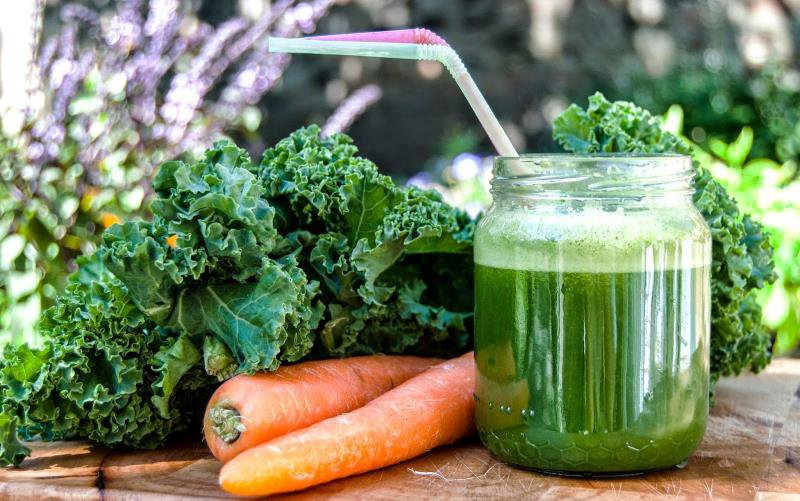
Kale 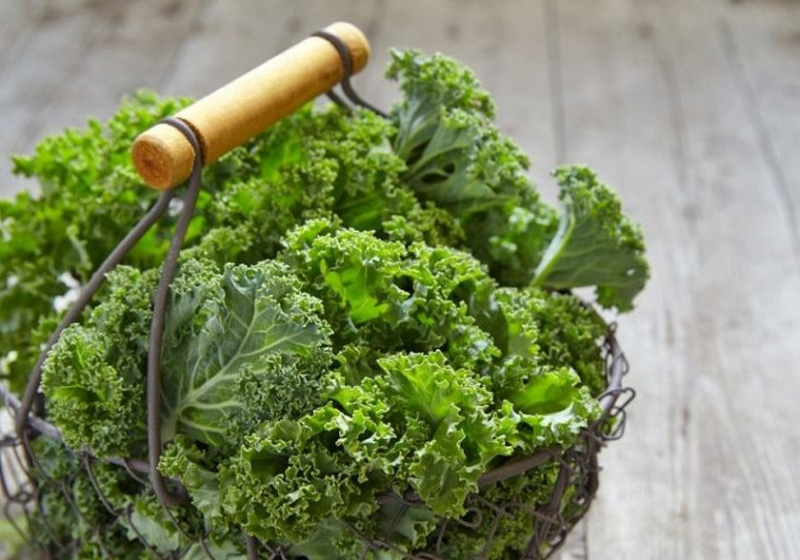
Kale -
Carrot juice is a nutrient-dense drink made from whole carrots. Carrots are an excellent juicing vegetable because of their slightly sweet flavor and high vitamin content. They're high in vitamin A, biotin, and potassium while being low in calories.
Drinking carrot juice is believed to help immunity and eye and skin health, among other things. They're also high in carotenoids, which are plant pigments that act as potent antioxidants in the body. Beta-carotene, lycopene, alpha-carotene, and lutein are some of them. Carotenoids are linked to a decreased risk of degenerative eye diseases, heart disease, and some types of cancer, including prostate cancer, according to studies. Carrot juice pairs well with other commonly juiced vegetables and fruits, such as citrus fruits, ginger, and beets, because of its sweetness.
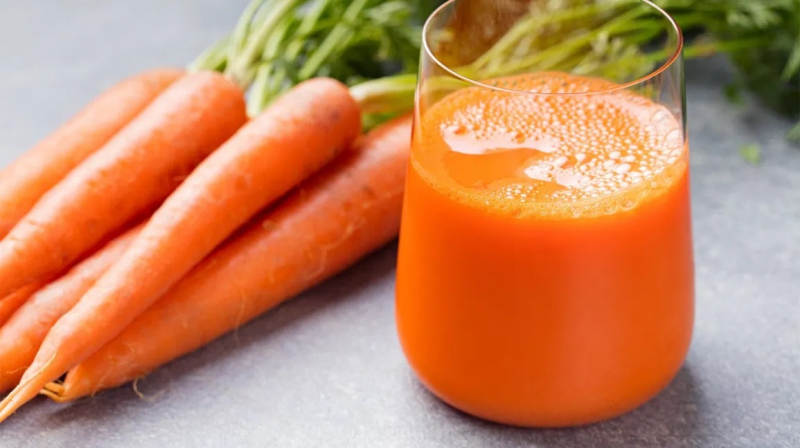
Carrots 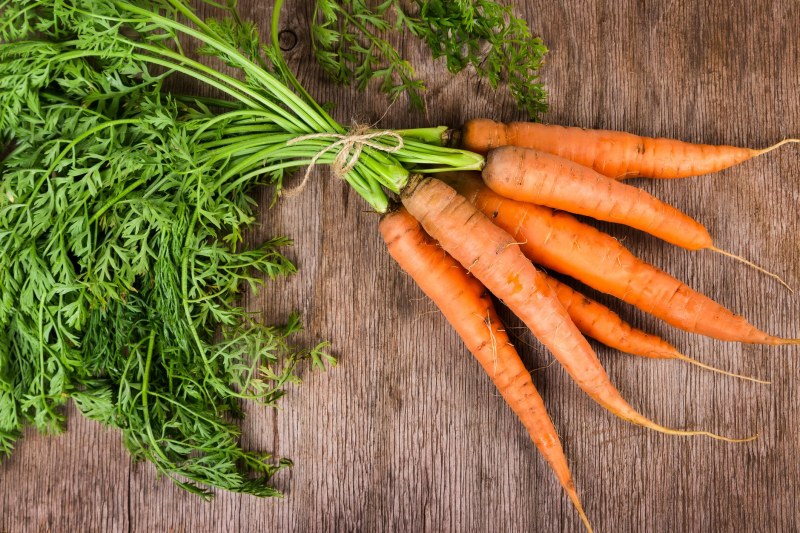
Carrots -
Beets are sweet, bulbous root vegetables that most people either love or hate. Beet juice, commonly known as beetroot juice, has been shown in studies to be beneficial to your health.
Beets are high in manganese, potassium, and folate, all of which are essential nutrients. They're also abundant in nitrates, a type of natural plant compound with potent health benefits. Beetroot juice, which is high in nitrates, has been shown to increase blood pressure as well as athletic and mental performance in studies. People who consumed 250 milliliters (or 8.4 ounces) of beet juice daily had reduced systolic and diastolic blood pressure, according to the study. Beets are not only excellent in juices, but their leafy green tops, known as beet greens, are also incredibly healthy and may be juiced.
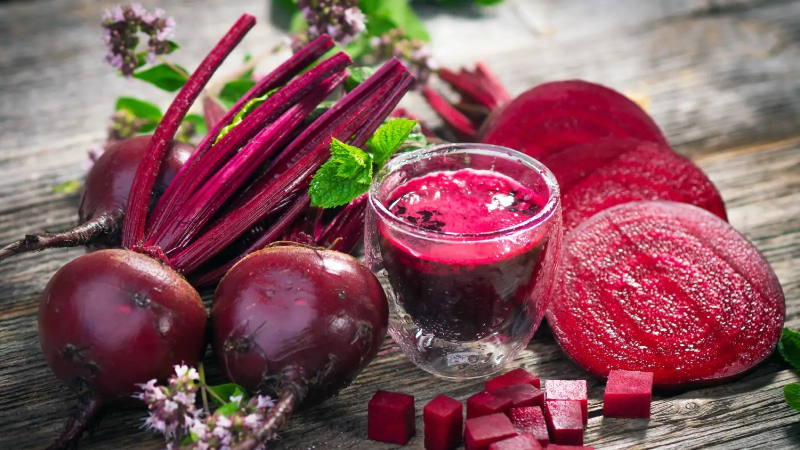
Beets 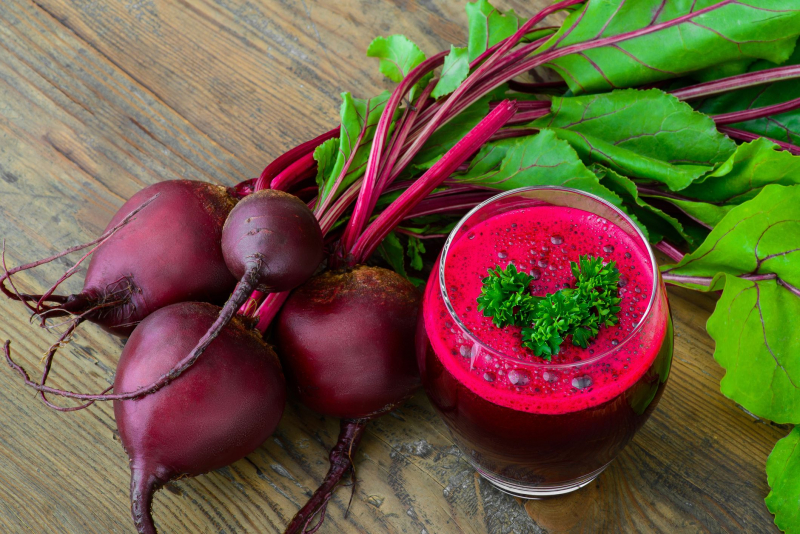
Beets -
Cabbage is a member of the Brassica plant family, which also includes broccoli, cauliflower, and kale. Cruciferous vegetables are the informal name for members of this group. This versatile vegetable can be eaten cooked or raw, fermented, or juiced.
Vitamins K and C, as well as other micronutrients including folate, manganese, and vitamin B6, are abundant in cabbage. Cabbage juice is high in nutrients including vitamins C and K, and it has been linked to a variety of health benefits, including weight loss, better gut health, reduced inflammation, balanced hormones, and body detoxification. Eating more cruciferous vegetables has been linked to a decreased risk of diabetes, heart disease, and inflammation, according to research.
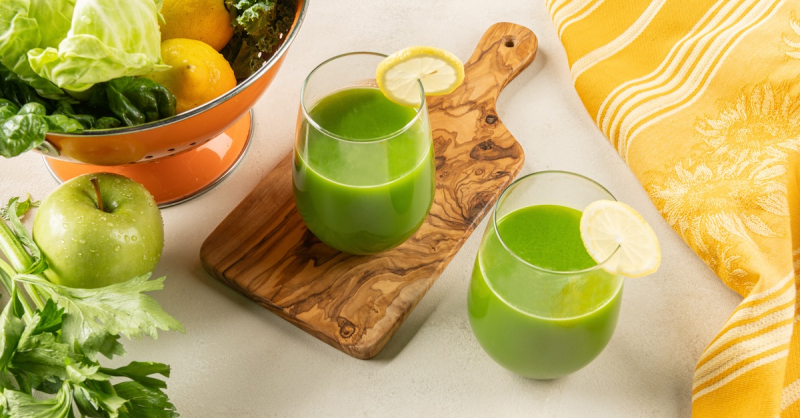
Cabbage 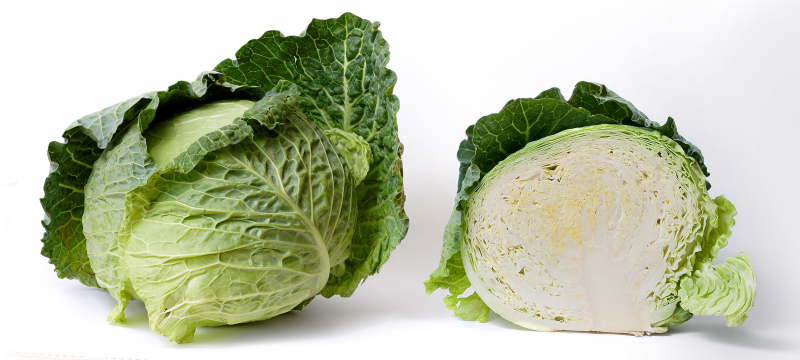
Cabbage -
Spinach is a leafy green vegetable that gives smoothies and juices a mild, fresh flavor. It is high in vitamins, minerals, and antioxidants, making it a true nutritional powerhouse.
It's packed with antioxidants like quercetin, kaempferol, and lutein, as well as vitamins A and C. Spinach also contains nitrates, which are good for your heart. A study of 27 people found that consuming spinach for seven days decreased systolic and diastolic blood pressure considerably. Heart disease is caused by high blood pressure, which is a key risk factor. Furthermore, some study shows that spinach juice contains antacid activity, making it a good choice for people who suffer from acid reflux.
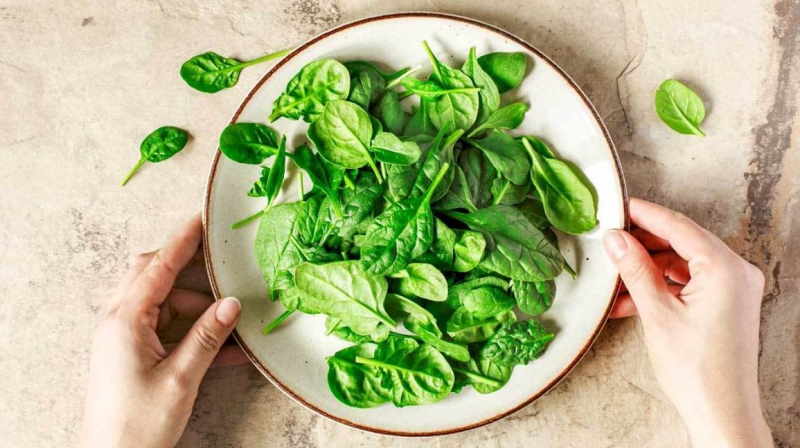
Spinach 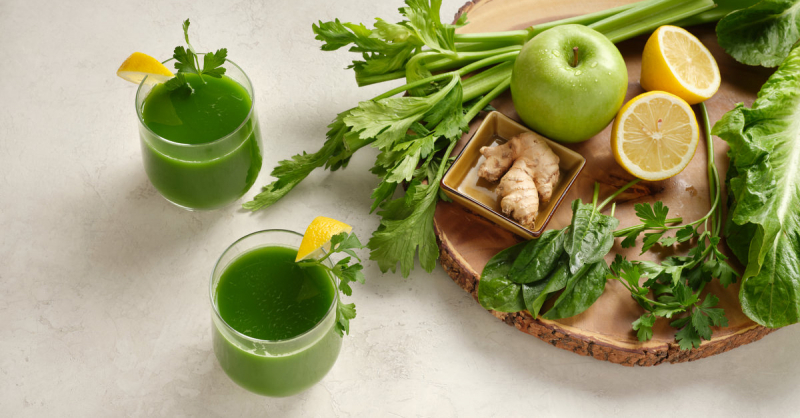
Spinach -
Cruciferous vegetables, which include broccoli, cauliflower, brussels sprouts, and kale, are an important part of your diet, and in some people, eating them on a regular basis may help prevent lung and colorectal cancer.
Broccoli has been linked to a number of beneficial properties. It's particularly high in important micronutrients including potassium and vitamins A, B6, and C. It also includes kaempferol, a potent compound that has been demonstrated in test-tube tests to neutralize disease-causing free radicals, reduce inflammation, and inhibit cancer cell growth. Furthermore, one recent research of 960 people found that consuming one serving of green vegetables high in kaempferol and other antioxidants per day may help to slow age-related cognitive decline.
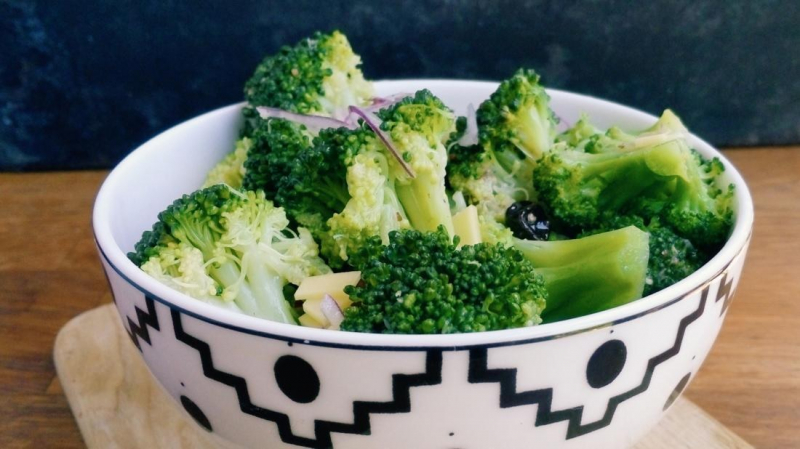
Broccoli 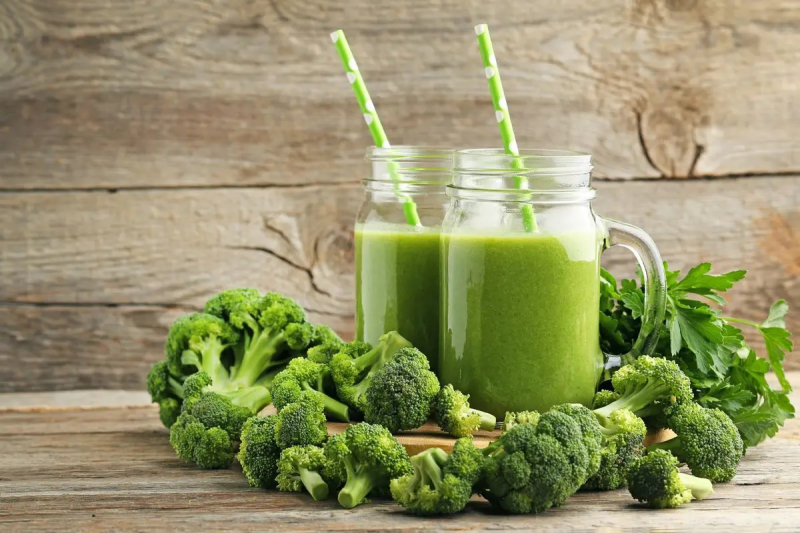
Broccoli -
Parsley is a powerful herb. It has a variety of health effects and is a great addition to juices. Vitamins A, K, and C are particularly abundant in fresh parsley, which may all contribute to its numerous health benefits.
1 cup of fresh parsley juice has 21 calories, 1 gram of carbohydrate, and 1 gram of protein. This mineral-rich juice has 332 mg of potassium and 33 mg of sodium, as well as 20% of your daily iron requirements and 8% of your calcium requirements. In one study, rats with diabetes were given parsley extract, which reduced blood sugar and increased blood antioxidant levels when compared to a control group. In another study, parsley extract improved antioxidant status and preserved liver function in rats with drug-induced liver damage.
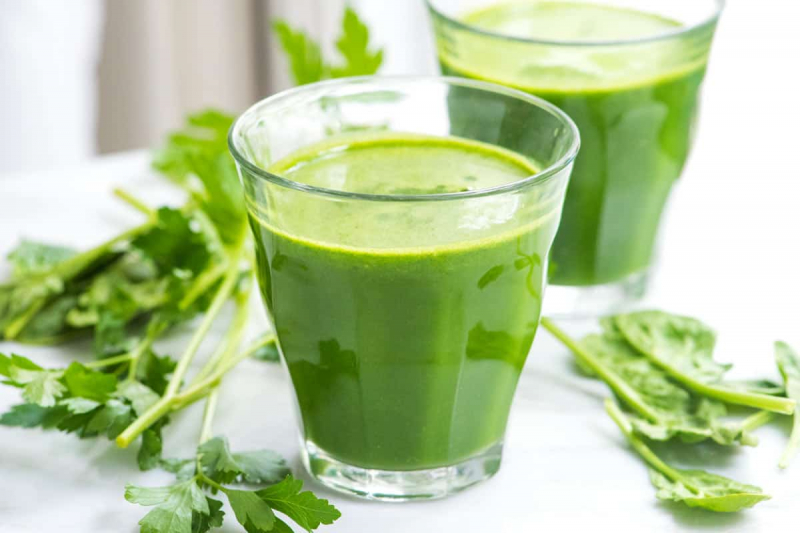
Parsley 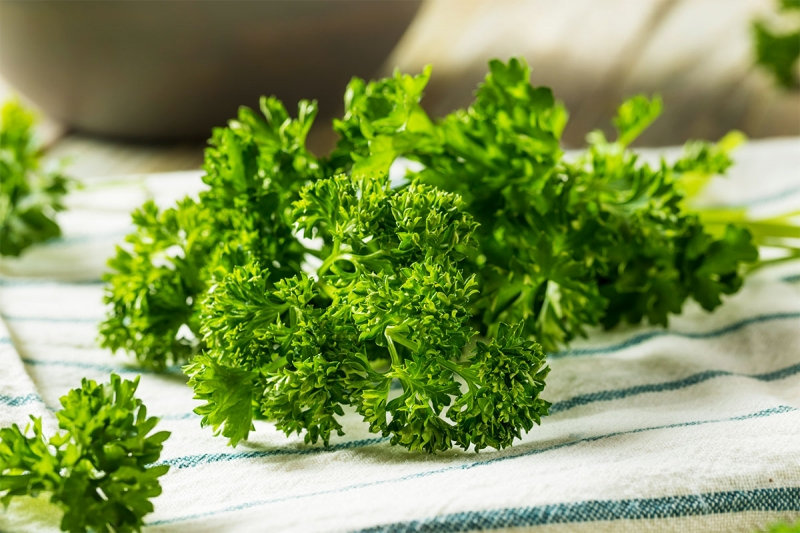
Parsley -
Cucumbers have long been prized for their refreshing flavor and hydrating properties. Cucumbers have a lot of water, so they're a great addition to your next juice.
Cucumbers are high in vitamin K and silica, both of which are necessary for glowing, healthy skin. Cucumber juice is also high in antioxidants, which are known to reduce inflammation in the skin, resulting in reduced redness and puffiness. They're also abundant in potassium, manganese, and vitamins K and C while being low in calories. Cucumbers can help you stay hydrated, which is important for digestive health, kidney function, weight loss, and physical performance. Cucumber extract may also help decrease inflammation in skin cells, according to a test-tube study. It is an excellent alternative after a day in the sun.
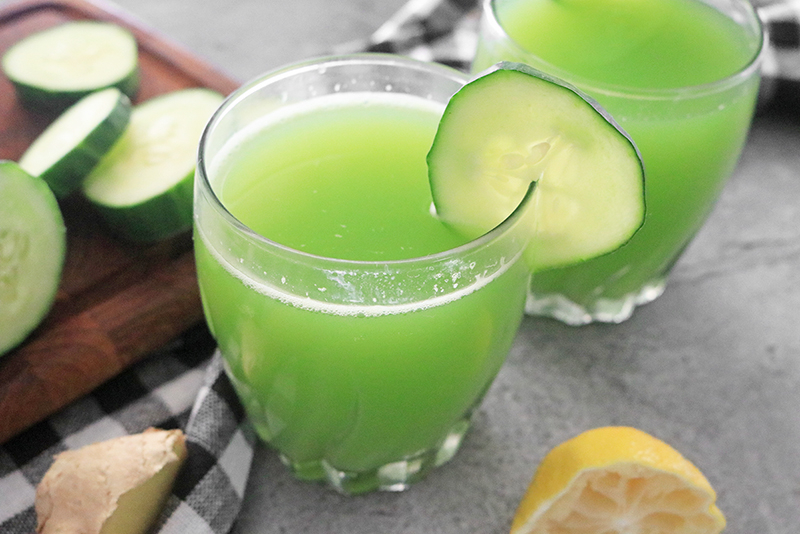
Cucumbers 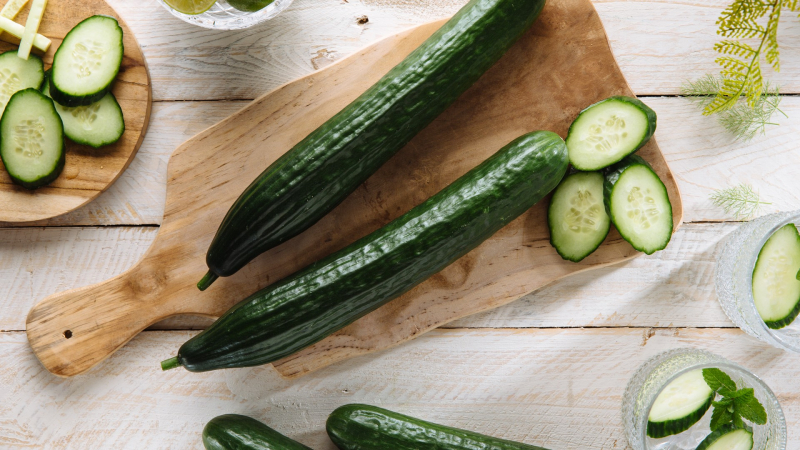
Cucumbers -
Swiss chard is a nutritious leafy green vegetable high in vitamins and minerals. In fact, each serving is high in vitamins A and C, which are important nutrients that also serve as antioxidants, helping your body fight cellular damage.
Swiss chard is a nutritional powerhouse, an excellent source of vitamins K, A, and C, as well as a good source of magnesium, potassium, iron, and dietary fiber. According to some animal experiments, swiss chard may be especially good for diabetics. In a 45-day study, rats with high blood sugar were given swiss chard extract, which increased antioxidant status and changed the activity of enzymes that control insulin, a blood sugar-regulating hormone. Swiss chard may be added to almost any juice or replaced with more common leafy greens like kale and spinach.
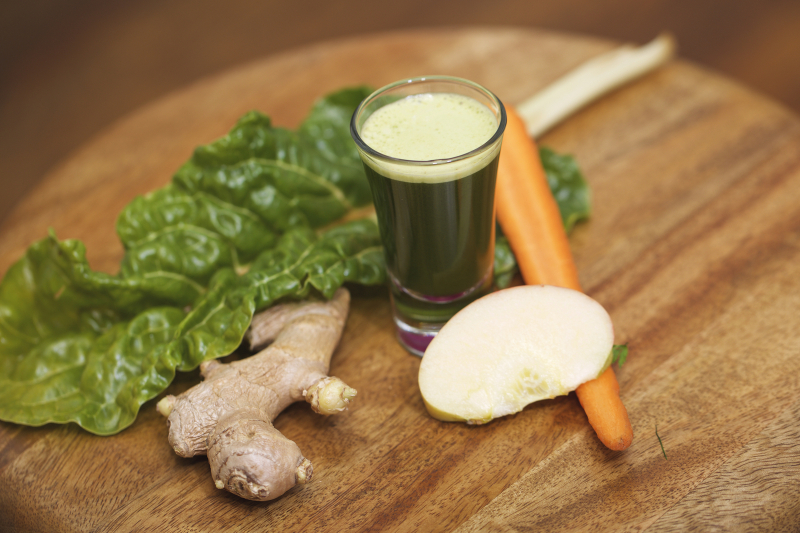
Swiss chard 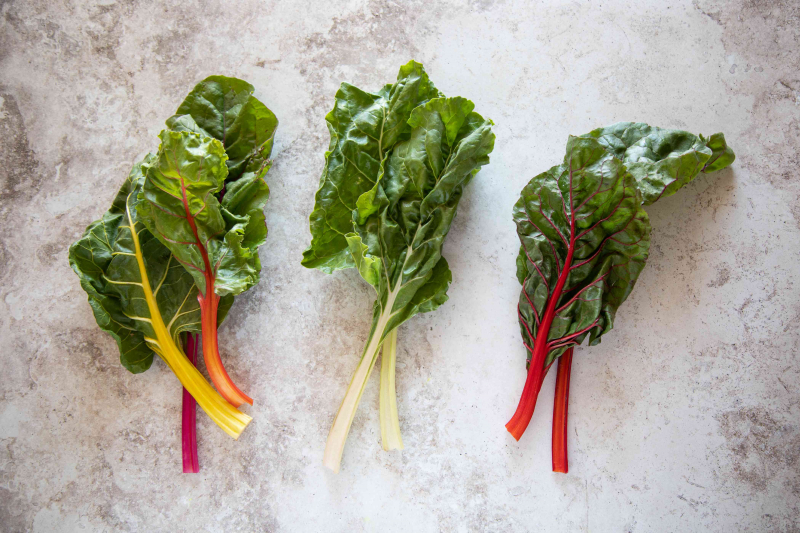
Swiss chard -
Wheatgrass is edible grass that is one of the most commonly used vegetables in juicing. It's a nutrient-dense ingredient that's high in iron, phosphorus, magnesium, and copper, as well as 17 different amino acids, which are the building blocks of proteins.
Wheatgrass includes enzymes that improve digestion by helping the body in breaking down food and absorb nutrients. Wheatgrass juice may also help in the detoxification of your system, resulting in less bloating, gas, and stomach upset. Chlorophyll, a natural plant pigment with anti-inflammatory and cancer-fighting properties, is also found. Furthermore, one research of 59 women discovered that using wheatgrass powder for 10 weeks lowered triglyceride and cholesterol levels, improving heart health. Wheatgrass juice can be taken as a shot or mixed with any juice to increase nutrient benefits.
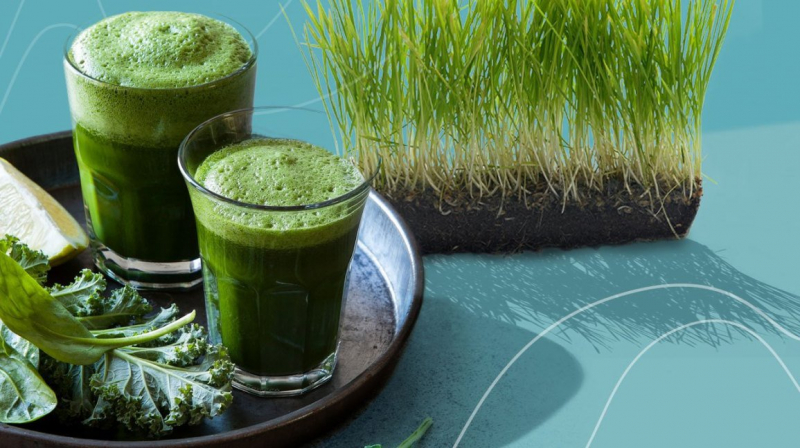
Wheatgrass 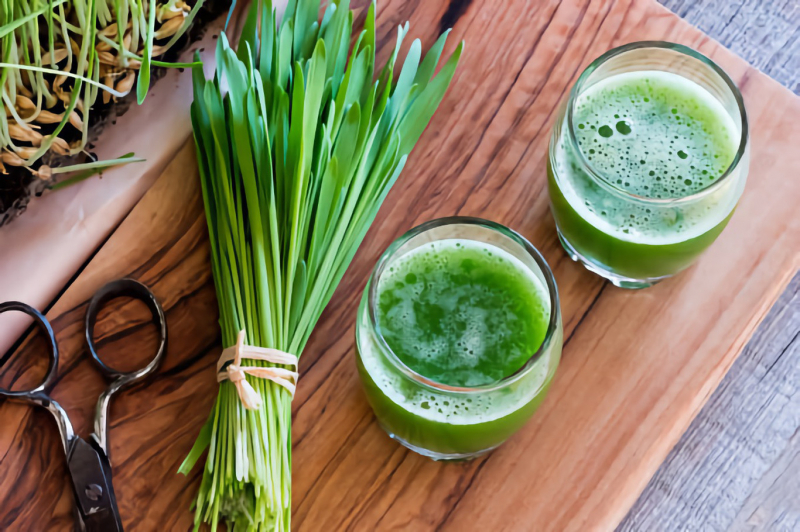
Wheatgrass































